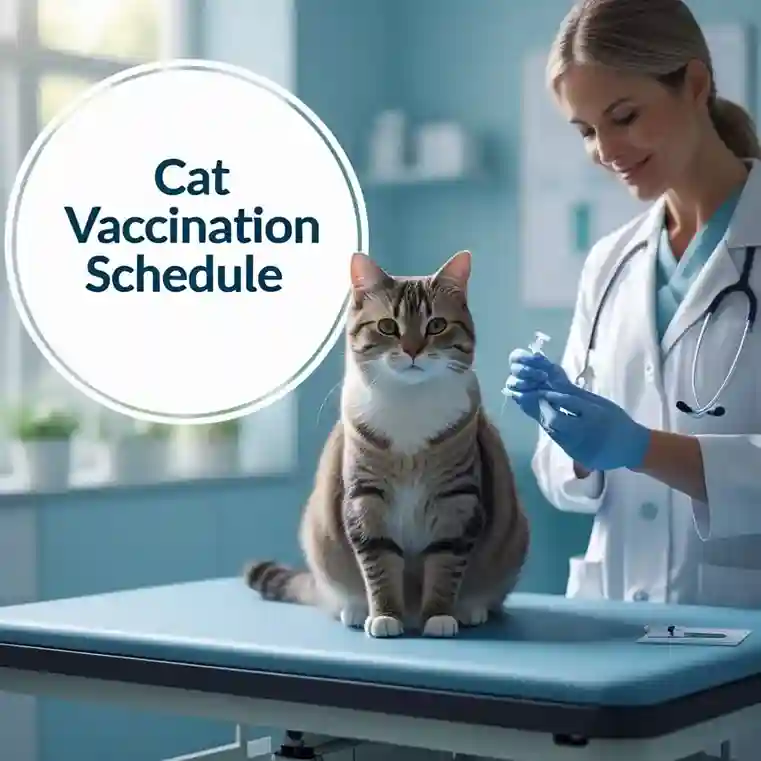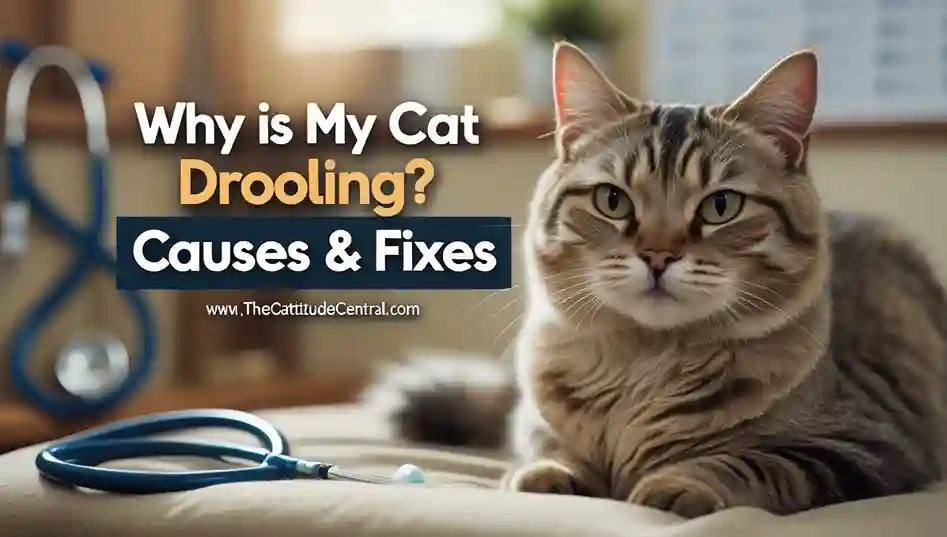For decades, the image of a cat lapping up a saucer of milk has been a staple in popular culture. From cartoons to cozy kitchen scenes, this image suggests that milk is a natural treat for felines. But is milk good for cats? This question is more complex than it seems. While cats may enjoy the taste, their ability to safely consume milk depends on several factors, including their age, health, and digestive system.
In this comprehensive guide, we’ll explore the science behind cats and milk, debunk common myths, and provide practical advice for cat owners. We’ll also recommend safe alternatives and highlight Amazon products to support your cat’s nutrition and hydration, ensuring you make informed choices for your feline friend.
The Science Behind Cats and Milk
Why Kittens Need Milk
Kittens rely on their mother’s milk in the first few weeks of life. This milk is rich in essential nutrients like proteins, fats, and antibodies that support growth and immune development. Kitten milk contains lactose, a sugar that kittens can digest thanks to an enzyme called lactase, which is produced in their digestive system. However, as kittens wean—typically around 7-8 weeks—this enzyme production decreases significantly. This natural process raises the question: is milk good for cats once they’re no longer kittens?
Lactose Intolerance in Adult Cats
As cats mature, most lose the ability to produce sufficient lactase, making them lactose intolerant. When a lactose-intolerant cat consumes milk, the undigested lactose ferments in the gut, leading to symptoms like diarrhea, bloating, and stomach discomfort. According to veterinary experts, many cats are lactose intolerant, and offering cow’s milk can cause more harm than good. So, is milk good for cats? For most adult cats, the answer is no, as their bodies are not equipped to handle lactose.
Exceptions to the Rule
While most adult cats are lactose intolerant, some may tolerate small amounts of milk without issue. However, this varies by individual, and even tolerant cats can experience problems if milk is given in excess. Additionally, milk contains calories that can contribute to weight gain, which is a concern for indoor cats prone to obesity. If you’re wondering, “Is milk good for cats in small doses?” the answer depends on your cat’s unique digestive system and overall health. Always consult a veterinarian before introducing milk into your cat’s diet.
Risks of Giving Milk to Cats
Digestive Upset
The primary risk of giving milk to cats is digestive upset. Symptoms of lactose intolerance include:
- Diarrhea
- Vomiting
- Bloating
- Gas
These symptoms can be uncomfortable and, in severe cases, lead to dehydration or nutritional imbalances. If you notice these signs after giving your cat milk, it’s a clear indication that milk is not good for your cat.
Obesity and Caloric Concerns
Milk, especially cow’s milk, is calorie-dense and contains fats that can contribute to weight gain. For example, a single cup of whole milk contains about 150 calories, which is significant for a cat’s daily caloric needs (typically 20 calories per pound of body weight). Regular milk consumption can lead to obesity, increasing the risk of diabetes, arthritis, and heart issues. When asking, “Is milk good for cats?” consider whether the extra calories align with your cat’s dietary needs.
Bacterial Risks in Raw Milk
Some pet owners advocate for raw milk, believing it’s more natural. However, raw milk poses serious risks, including contamination with bacteria like Salmonella or E. coli, which can harm both cats and humans. The World Small Animal Veterinary Association (WSAVA) advises against feeding raw diets, including raw milk, due to these health risks. If you’re wondering, “Is milk good for cats when it’s raw?” the answer is a firm no—cooked or pasteurized milk is safer, but still not ideal for most cats.
Safe Alternatives to Milk for Cats
If milk isn’t good for cats, what can you offer instead? Fortunately, there are plenty of safe, cat-friendly options that satisfy their love for creamy textures while supporting their health.
Cat-Safe Milk Substitutes
Several products are designed specifically for cats, mimicking the taste and texture of milk without the lactose. These include:
- Whiskas Cat Milk: A lactose-free milk formulated for cats, available on Amazon. It’s enriched with vitamins and minerals to support feline health.
Product Link: Whiskas Cat Milk - Pet-Ag KMR Kitten Milk Replacer: Ideal for kittens or adult cats needing a nutritional boost, this formula is gentle on sensitive stomachs.
Product Link: Pet-Ag KMR Kitten Milk Replacer
These products provide a safe way to indulge your cat’s craving for milk without the risks. Always check with your vet before introducing new foods.
Hydration Alternatives
Hydration is critical for cats, especially since they’re prone to urinary tract issues. Instead of milk, offer:
- Fresh, clean water (consider a cat water fountain to encourage drinking).
- Wet cat food, which has high moisture content.
- Broths like Tiki Cat Broth Pouches, available on Amazon, which are low-calorie and flavorful.
Product Link: Tiki Cat Broth Pouches
These options ensure your cat stays hydrated without the question of whether milk is good for cats lingering in your mind.
Goat Milk: A Better Option?
Some cat owners turn to goat milk, believing it’s easier to digest. While goat milk has less lactose than cow’s milk, it’s not entirely lactose-free and can still cause issues for lactose-intolerant cats. Veterinary sources note that while goat milk may be tolerated by some cats, it’s not a necessary addition to their diet and should be given sparingly, if at all. If you choose to try it, opt for a cat-specific goat milk product like The Honest Kitchen Goat’s Milk for Cats, available on Amazon.
Product Link: The Honest Kitchen Goat’s Milk
How to Monitor Your Cat’s Reaction to Milk
If you decide to test whether milk is good for your cat, introduce it in small amounts (e.g., a teaspoon) and observe for 24-48 hours. Watch for signs of digestive upset, such as:
- Loose stools or diarrhea
- Lethargy
- Vomiting
If any symptoms occur, stop offering milk immediately and consult your veterinarian. Keeping a food diary can help track your cat’s reactions to new foods, including milk or milk substitutes.
Best Practices for Feeding Cats
A Balanced Diet
Cats are obligate carnivores, meaning their diet should primarily consist of meat-based proteins. High-quality commercial cat foods, like those reviewed on Cats.com, provide the right balance of nutrients without the need for milk. Look for brands like Open Farm RawMix or Smalls Fresh Cat Food, both available on Amazon, which prioritize animal-derived proteins and low carbohydrates.
Product Links:
Consulting a Veterinarian
Before making dietary changes, consult a veterinarian to ensure your cat’s needs are met. This is especially important for kittens, senior cats, or those with health conditions like kidney disease, where milk is rarely beneficial. A vet can also recommend supplements or foods tailored to your cat’s life stage.
Amazon Products for Feline Nutrition and Hydration
To support your cat’s health without relying on milk, consider these top-rated Amazon products:
- PetSafe Seaside Stainless Steel Cat Water Fountain: Encourages hydration with a quiet, flowing stream.
Link: PetSafe Seaside Fountain - Purina Pro Plan Veterinary Diets Hydra Care: A hydrating supplement for cats prone to urinary issues.
Link: Purina Hydra Care - Litter-Robot 4: A self-cleaning litter box to maintain a clean environment, reducing stress for sensitive cats.
Link: Litter-Robot 4
These products align with the question, “Is milk good for cats?” by offering healthier alternatives that prioritize hydration and nutrition.
FAQs About Cats and Milk
1. Can cats drink milk at all?
Most adult cats are lactose intolerant, so milk can cause digestive issues like diarrhea or vomiting. Kittens need their mother’s milk or a kitten-specific formula until weaned. For adult cats, lactose-free cat milk or water is safer.
2. What kind of milk is safe for cats?
Lactose-free cat milk, like Whiskas Cat Milk, or kitten milk replacers are safe options. Goat milk may be tolerated by some cats but should be given sparingly and under veterinary guidance.
3. Why do cats love milk if it’s bad for them?
Cats are attracted to the fat and protein in milk, which mimics their natural diet. However, their love for the taste doesn’t mean milk is good for cats. Offer cat-safe treats instead.
4. Can milk cause long-term health issues in cats?
Regular milk consumption can lead to obesity, digestive problems, or nutrient imbalances. It’s best to avoid milk and focus on a balanced, meat-based diet.
5. How can I keep my cat hydrated without milk?
Provide fresh water, use a cat water fountain, or offer wet cat food and broths. Products like Tiki Cat Broth Pouches or Purina Hydra Care can boost hydration.
Conclusion
So, is milk good for cats? The answer is generally no for adult cats due to lactose intolerance, caloric concerns, and potential health risks. Kittens need their mother’s milk or a specialized formula, but once weaned, milk becomes unnecessary and often harmful. Instead, focus on a balanced, meat-based diet and cat-safe alternatives like lactose-free milk or hydrating broths.
Products like Whiskas Cat Milk, Pet-Ag KMR, and Tiki Cat Broth Pouches, available on Amazon, offer safe ways to indulge your cat’s cravings. Always consult your veterinarian before introducing new foods, and monitor your cat’s reactions closely. By prioritizing their nutritional needs, you can keep your feline friend healthy and happy without the risks of milk.



